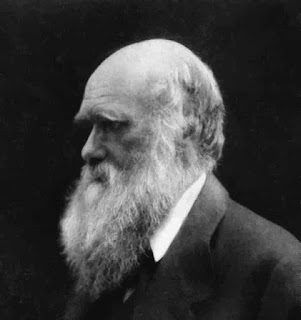If you have ever used a computer, talked on a cell phone, visited a physician, or operated a motor vehicle, you have benefited from science. Much of the food you eat, the medicines you use, and so many other things you may take for granted have been influenced by the biological sciences in particular. In addition to being the foundation of the modern biological sciences, evolutionary theory has been more rigorously evaluated and received more empirical support than any other theory from any branch of science. And yet, more Americans endorse creationist explanations for human origins than evolutionary ones.
The Importance of America's Evolution Denial
America has a long history of religious fundamentalism, and Americans' distaste for evolution is not exactly a new phenomenon. Despite widespread rejection of evolution in the general population, American science has continued to advance to the benefit of all citizens. Why then should this be a pressing concern now?
It is important to recognize that our modern world is becoming increasingly complex, as increased technological prowess is required in one's daily life. I remember making fun of my grandparents for not understanding how to hook up a VCR, but I now struggle to set up some of the high-end HDTV setups. My competence with computers far outstrips that of my parents, but I am confident that many 10 year-olds would blow me away without breaking a sweat.
Increased complexity requires increasingly sophisticated levels of scientific literacy and education, especially if America hopes to compete with the rest of the world in science and technology. The numbers are not encouraging in this regard, as America trails all countries but Turkey in acceptance of evolution. It is also concerning that the percentage of Americans who accept evolution has declined over the past 20 years.
Sources of the Problem
When one considers the sources of America's denial of evolution, the first thing that likely comes to mind is Christian fundamentalism. According to Michigan State University professor, Jon Miller, "American Protestantism is more fundamentalist than anybody except perhaps the Islamic fundamentalist, which is why Turkey and we are so close" (LiveScience).
Far too often, the media, and even many scientists, refuse to point the finger at religious fundamentalism. We are taught that we must respect religious beliefs, and a surprising number of scientists adopt the position that science and religion are two mutually exclusive domains which should not poach each other's subject matter.
In addition to religious fundamentalism, poor scientific literacy is a relevant contributing factor. Simply put, if the American educational system continues to turn out children who lack a solid science education, it is reasonable to expect that Americans will remain vulnerable to pseudoscience and other forms of misinformation. Facing tremendous pressure from vocal parent groups, many high schools water down their science curricula to the point where students are unlikely to learn the basics they will need.
Partisan politics appears to be yet another factor contributing to evolution denial in America. A surprising 70% of Republicans deny evolution, and the lead up to the 2008 election has revealed a number of Republican candidates willingly to publicly proclaim their rejection of evolution. If nothing else, this suggests that they do not fear being laughed out of the room for making such absurd statements.
Solutions
A complex problem with multiple causes requires a multi-pronged solution. First, we need to increase public awareness of the problem. A public awareness campaign is needed to show our fellow citizens that science education is under attack by religious fundamentalists and that this has important consequences for all Americans.
Second, scientists must be strong advocates for science education and improved scientific literacy. The good news is that many Americans want to hear more from scientists. This should be cause for optimism, but it will require more scientists to advocate for their fields.
Third, political candidates should be asked about their views on science and how they plan to improve science education. One excellent proposal for doing so would involve a science debate, where scientific issues took center stage. Americans should have deep reservations about supporting any candidate who denies evolution.
Fourth, all concerned Americans should proudly carry the banner of reason. If there is one point we must get across in every interaction and every blog post, it is this: Americans are free to believe anything they want, but believing something does not make it true or immune from criticism. Cloaking a false belief in the mantle of religion does not make it any less false and must not be allowed to shield it from criticism. We can maintain respect for one's right to believe something without having to respect the belief itself.
2.12.2008
America's Evolution Denial
2008-02-12T05:47:00-06:00
vjack
Education
|
Skepticism
|
